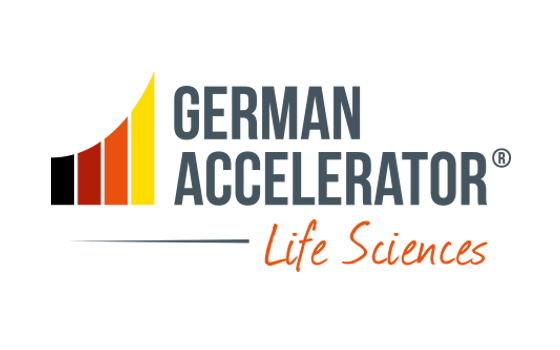 German Accelerator Life Sciences (GALS) helps young German life science companies succeed in the global market. GALS provides individualized and highly flexible services, tailored towards the specific needs and objectives of startups and emerging companies in the life sciences. Experienced mentors and consultants work with the participating teams to establish networks of potential clients, partners, and investors.
German Accelerator Life Sciences (GALS) helps young German life science companies succeed in the global market. GALS provides individualized and highly flexible services, tailored towards the specific needs and objectives of startups and emerging companies in the life sciences. Experienced mentors and consultants work with the participating teams to establish networks of potential clients, partners, and investors.
Applicants must be promising emerging life science companies that have great potential to benefit from the GALS program. Companies must have an affiliation with Germany, i.e. incorporated in Germany or with significant operations there. Applicants must develop a product or service in (at least) one of the five supported life science segments: Digital Health, Medical Devices, Diagnostics, Therapeutics, or Platform Technologies. The stage of the company's growth is relevant; the age of the company is not.
Application
The GALS application consists of around 20 questions about your company, team, technology, and business plan. It only takes a couple of hours to complete. We also request that companies submit additional materials with their application, such as a slide deck and a product demo (if available). Companies apply to the GALS program via the F6S platform.
GALS accepts companies into the program on a rolling basis. Companies can apply any time. Applications are reviewed by the Selection Committee every 6-8 weeks. Program start dates are flexible.
Next application deadline: March 31, 2017
The GALS Selection Committee meets approximately every 6-8 weeks to evaluate new applications. GALS then invites selected promising companies to an in-person workshop for a further assessment of their technology/approach and business strategy.
All services provided by GALS are free of charge for program participants, however GALS will not cover any related travel or living expenses.
For further infromation, please visit:
http://germanaccelerator.com/life-sciences/
About the German Accelerator Life Sciences
The German Accelerator Life Sciences (GALS) is an initiative of the German Federal Ministry for Economic Affairs and Energy (BMWi), with the goal of helping German startups and young companies succeed in the global marketplace. GALS offers support in multiple areas, from free office space in the world's leading life science innovation hub, to mentoring and advising from industry experts and experienced leaders. GALS opened its doors in October 2015 and has its headquarters in Cambridge, Massachusetts.